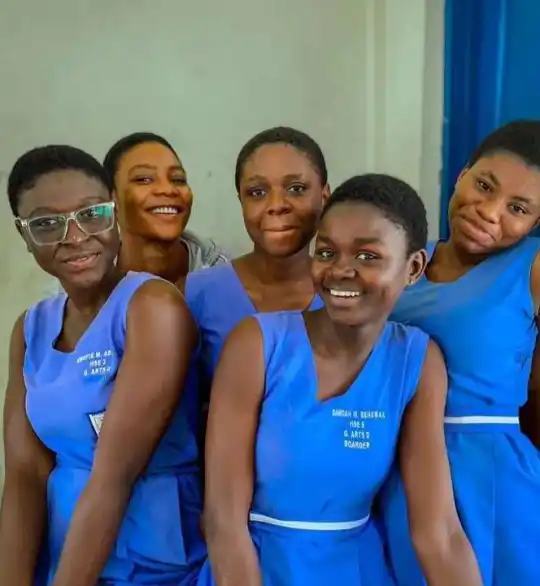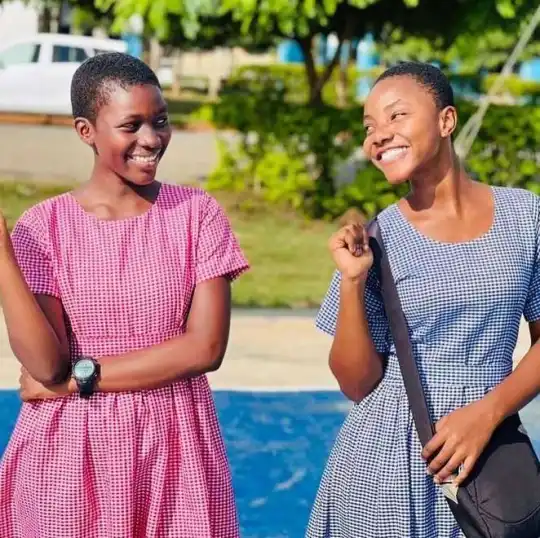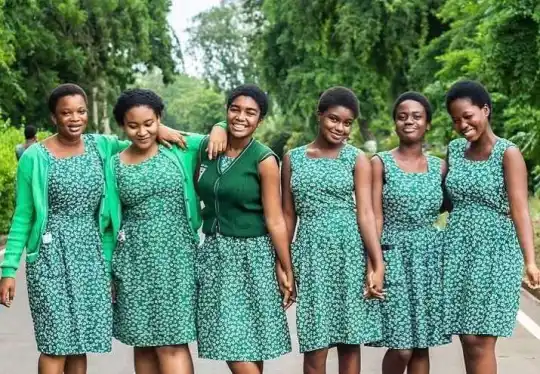
In Ghana, Senior High School (SHS) life can be full of excitement, growth, and new experiences. For many students, this is the time when they explore their identity, make new friends, and start to understand their personal values and beliefs. However, as with any major life decision, some choices can have serious, unintended consequences. One such choice, particularly for lesbian students, is being involved in a romantic relationship with someone of the same sex. While sexual orientation is a personal matter, in a country like Ghana, where homosexuality is still largely viewed as taboo and not widely accepted, engaging in a lesbian relationship on campus can come with significant risks.
Here are 8 life dangers that could arise from being in a lesbian relationship as an SHS student in Ghana:
### 1. **Social Stigma and Isolation**
In Ghanaian society, lesbian relationships are generally not accepted, and LGBTQ+ issues are often met with hostility or disapproval. As a result, being openly in a lesbian relationship at school can lead to social stigma. You may be labeled, bullied, or rejected by your peers, friends, and even teachers. This can create a sense of isolation, as you may find it difficult to connect with others or be accepted in your social circles. The fear of judgment can be overwhelming and can cause immense emotional stress.

### 2. **Discrimination and Harassment**
Homosexuality is illegal in Ghana under the criminal code, and the law does not make exceptions based on age or context. Even though the law is not always strictly enforced, it creates an atmosphere where discrimination and harassment thrive. If your relationship is discovered, you could face serious consequences from your classmates, teachers, or even members of your community. Harassment could take many forms, including verbal abuse, physical bullying, or exclusion from school activities. Such treatment can damage your mental health and self- esteem.

### 3. **Emotional and Psychological Impact**
The pressure to hide your true feelings or identity can lead to emotional and psychological distress. Being in a lesbian relationship in an environment where it' s frowned upon can create feelings of guilt, shame, and confusion. You may feel like you' re living a double life, where one part of you is in a relationship, and the other part is pretending to be something you are not. Over time, this emotional strain can affect your mental health, leading to anxiety, depression, and other psychological issues.
### 4. **Parental Disapproval and Family Conflict**
In many Ghanaian families, traditional beliefs about gender roles and relationships are deeply rooted, and parents are generally not open to the idea of homosexuality. If your parents find out about your lesbian relationship, they might react negatively, with some possibly disowning you or cutting off financial support. This can result in family conflicts, emotional distress, and a sense of abandonment. The burden of disappointing your family could weigh heavily on you, making it difficult to navigate school life and personal relationships.

### 5. **Reputation Damage**
In Ghanaian schools, reputation plays a crucial role in how students are treated and perceived. If you are in a lesbian relationship, word can quickly spread among your classmates and teachers. This may lead to gossip, rumors, and public shaming, damaging your reputation both within the school and beyond. As a result, you might face discrimination from future opportunities, including scholarships, university admissions, or job prospects. A tarnished reputation can follow you for years and affect your future prospects.
### 6. **Academic Performance Decline**
The emotional and social challenges that come with being in a lesbian relationship in an unaccepting environment can affect your academic performance. The constant stress of hiding your true self, dealing with bullying, or facing family conflict can make it difficult to focus on your studies. Anxiety, depression, and lack of support may reduce your ability to concentrate in class, complete assignments on time, or participate in school activities. Over time, this could lead to a drop in academic performance, which might affect your overall success in SHS.

### 7. **Risk of Exploitation**
In some cases, students involved in same- sex relationships on campus may become vulnerable to exploitation. This can happen when someone in a position of power, such as a teacher or senior student, takes advantage of their secret relationship for personal gain. They might manipulate or coerce you into situations that are not in your best interest, emotionally or physically. Being in a relationship that is hidden and secretive increases the risk of exploitation, as you may feel pressured to keep things quiet and tolerate unacceptable behavior.
### 8. **Physical Safety Concerns**
In some extreme cases, the discovery of a lesbian relationship on campus can result in physical violence. Ghanaian society can be hostile to non- heteronormative relationships, and some individuals may feel compelled to take matters into their own hands. There have been instances where LGBTQ+ individuals have been attacked or harassed in public due to their sexual orientation. If your relationship is exposed, you could face physical threats from students, teachers, or even outsiders who do not support or understand your choice. This poses a serious risk to your physical well- being.

Being in a lesbian relationship as an SHS student in Ghana comes with various risks and challenges that can affect your social, emotional, and academic life. The societal stigma, discrimination, and even legal consequences associated with homosexuality in the country can make it incredibly difficult for LGBTQ+ students to express themselves freely. The dangers listed above highlight just a few of the potential issues that can arise, but it' s important to remember that every person' s experience is different.

While there is a growing movement for LGBTQ+ rights in Ghana, the reality is that discrimination and prejudice are still very prevalent. If you are in a same- sex relationship or are questioning your sexual orientation, it' s crucial to seek support from trusted friends, counselors, or organizations that specialize in LGBTQ+ issues. Your mental and emotional well- being should always be a priority. Ultimately, every person deserves to live authentically, but it is important to be aware of the risks and take steps to protect yourself in a challenging environment.





No comments yet
Be the first to share your thoughts!